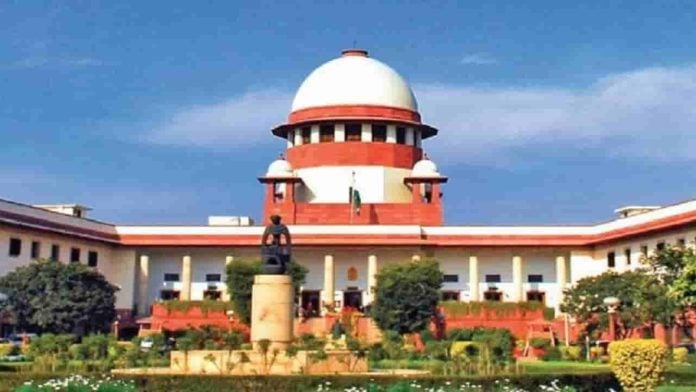The Supreme Court has asked for response of the Central government on a public interest litigation (PIL) filed by the National Commission for Women (NCW)for making the minimum age of marriage for Muslims the same as that belonging to other religions
A bench comprising of Chief Justice of India DY Chandrachud and Justice PS Narasimha have issued notice, returnable in four weeks,on the plea filed through advocate Nitin Saluja.
NCW was represented by Senior Advocate Geeta Luthra with advocates Shivani Luthra Lohiya and Asmita Narula
The petitioner has stated that the PIL has been filed for the enforcement of the fundamental rights of minor Muslim women.
It aims at bringing Islamic personal law in consonance with the penal laws applicable for all the other religions.
The minimum age for marriage in India is currently 18 for women and 21 for men. A bill is still before a parliamentary committee for making it uniform for both.
The minimum age for marriage in Muslim women however is the time, she hits puberty and thus 15 years is presumed to be that age.
The marriage with Muslim women above 15 years is treated as valid under the law.
The NCW has argued in the plea that allowing Muslims to marry at the age of puberty (around 15) is arbitrary, irrational, discriminatory, and violative of penal laws.
The plea clearly states that a person who has attained puberty may be biologically capable of reproduction but it does not mean that he is mature enough to get married.
The plea also added that age of 15 is too young to be physically engaged in sexual acts and consequently, bear children,
It was also said that allowing 15 years of age for marriage will enable forcible marriage of young Muslim girls, which may subject them to sexual abuse, harassment and exploitation at their husband’s behest in the name of consent.
The Protection of Children from Sexual Offences Act (POCSO) also does not provide for those under 18 to consent for sex.
The lea said that merely because child marriages have been performed as a part of a tradition does not mean necessarily mean that the tradition is an acceptable one nor should it be sanctified as such.
The PIL also said that the POCSO and Prevention of Child Marriage Actsalong with the Indian Penal Code should be given effect over personal law of all religions in this regard.
The issue raised in the present PIL of a conflict between penal laws and Muslim Personal Law, has come up before several High Court in the recent past.


